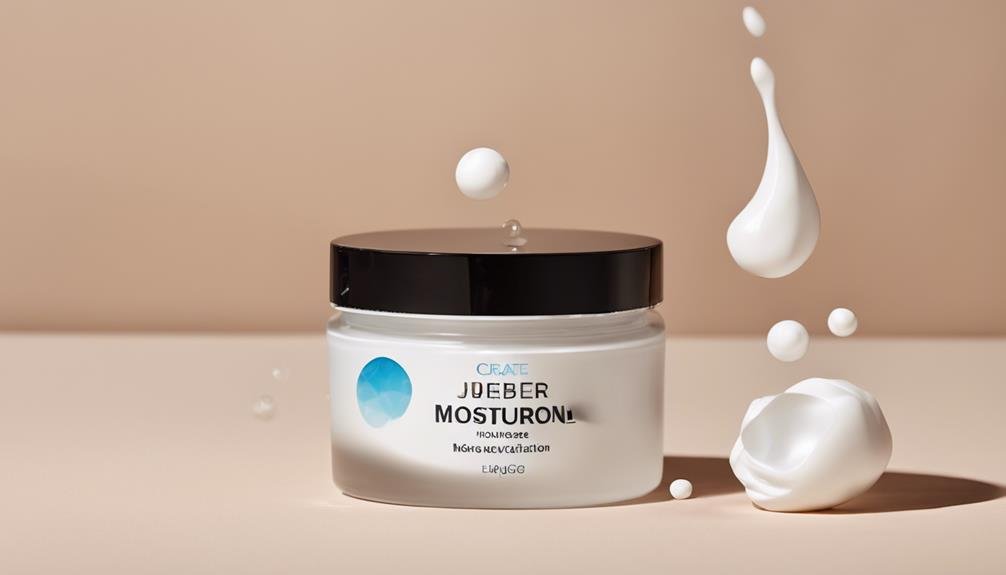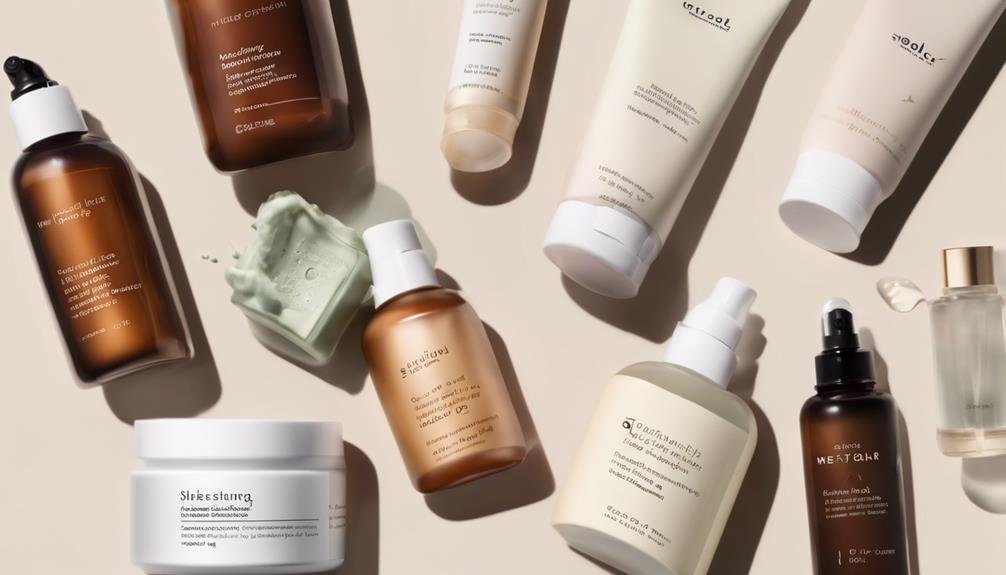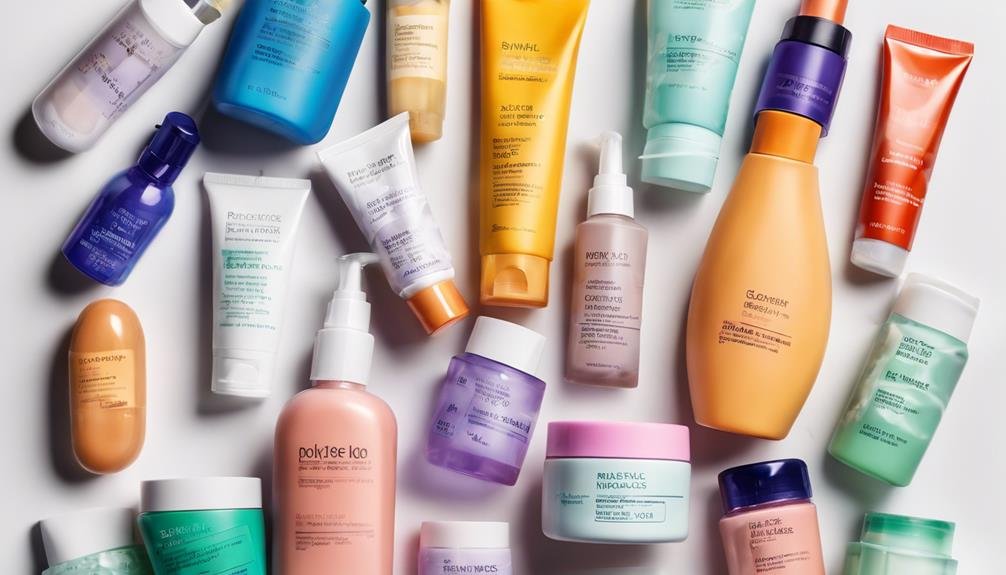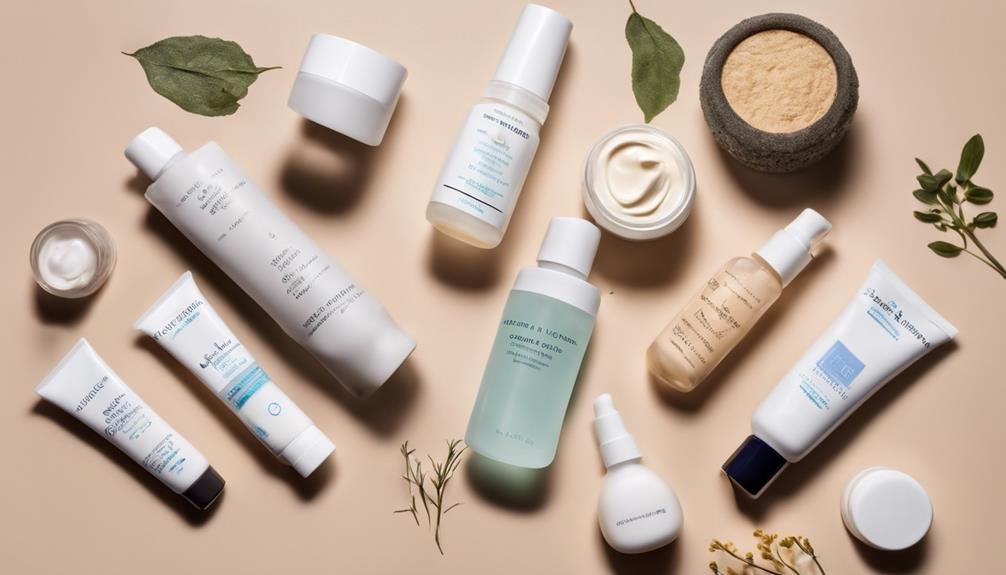"Cherishing Little Steps - A Haven for Baby and Family Journeys"
How to Choose the Best Moisturizer
When selecting a moisturizer, knowing your skin type is crucial, but have you considered the impact of different ingredients on your skin's overall health and appearance? Understanding the science behind hydration and moisturization can lead to better product choices. However, there's one more key factor to keep in mind that can truly elevate your skincare routine and provide the nourishment your skin craves.
Skin Type Assessment
When selecting the best moisturizer for your skin, it's crucial to begin with a thorough assessment of your skin type. Understanding your skin's pH balance and oil production is key to choosing the right product.
The pH balance of your skin refers to its acidity or alkalinity levels. Skin with a balanced pH is better able to retain moisture and fight off harmful bacteria. On the other hand, imbalances can lead to dryness, irritation, or excessive oiliness.
Oil production is another critical factor to consider. Skin that produces excess oil may benefit from oil-free or non-comedogenic moisturizers to prevent clogged pores and breakouts. In contrast, skin that's dry may require richer, more hydrating formulas to replenish moisture levels effectively.
Understanding Ingredients
To make an informed decision when choosing a moisturizer, it's essential to understand the ingredients in the products you're considering. Ingredient compatibility plays a crucial role in determining the product's effectiveness on your skin.
Natural ingredients, such as aloe vera or coconut oil, are often gentler and may be better suited for sensitive skin compared to synthetic ingredients. However, it's essential to note that natural ingredients can also be potential irritants for some individuals.
On the other hand, synthetic ingredients are formulated to mimic natural substances and can offer specific benefits that natural ingredients may not provide. When selecting a moisturizer, carefully review the ingredient list to ensure it aligns with your skin's needs and preferences.
Look for products that balance natural and synthetic ingredients effectively while avoiding potential irritants that could cause adverse reactions on your skin. Understanding the ingredients in your moisturizer is key to achieving optimal skincare results.
Hydration vs. Moisturization

Understanding the distinction between hydration and moisturization is crucial in selecting the right skincare products for your skin's needs.
Hydration benefits your skin by replenishing water content, giving it a plump and healthy appearance. It's essential for maintaining skin health and function.
On the other hand, moisturization techniques involve using products that create a barrier to prevent water loss, locking in moisture and keeping your skin soft and smooth.
When choosing a moisturizer, look for ingredients like hyaluronic acid for hydration and ceramides for moisturization. Hyaluronic acid attracts water to the skin, while ceramides help retain moisture by reinforcing the skin's natural barrier.
Understanding how hydration and moisturization work together can help you tailor your skincare routine to meet your skin's specific needs. By incorporating products that offer both hydration and moisturization benefits, you can achieve a well-balanced and nourished complexion.
SPF Consideration
Consider incorporating SPF into your skincare routine as a crucial step in protecting your skin from harmful UV rays. When choosing a moisturizer with SPF, you'll encounter both chemical and physical options. Chemical SPF absorbs UV radiation, while physical SPF acts as a barrier by reflecting it. For daily use, opt for a moisturizer with broad-spectrum SPF protection to shield against both UVA and UVB rays. This is essential, even on cloudy days, as UV rays can penetrate through clouds.
While occasional use of SPF is better than none, consistent daily application offers the most effective protection against premature aging and skin cancer.
When incorporating SPF into your routine, remember to apply it generously to cover all exposed areas, including your face, neck, and hands. Reapply every two hours, especially if you're outdoors or swimming. By making SPF a daily habit, you're taking a proactive step in caring for your skin's health and preserving its youthful appearance.
Fragrance-Free Options

Curious about why fragrance-free moisturizers are gaining popularity among skincare enthusiasts? Fragrance can be a common irritant for sensitive skin, leading many individuals to seek out fragrance-free options. If you have sensitive skin or are prone to allergies, choosing a moisturizer without added fragrance can help reduce the risk of irritation and allergic reactions.
Fragrance-free moisturizers often contain allergen-free formulas, making them suitable for those with easily irritated skin. These formulas are designed to provide hydration and nourishment without the potential side effects of added fragrances. By opting for fragrance-free options, you can minimize the likelihood of redness, itching, or discomfort that fragranced products may cause.
When selecting a moisturizer, especially for sensitive skin, look for products labeled as fragrance-free and formulated with allergen-free ingredients. These options can help maintain the health and balance of your skin without the risk of triggering adverse reactions.
Prioritizing fragrance-free moisturizers is a smart choice for maintaining skin health, particularly for individuals with sensitive skin or allergies.
Texture and Consistency
Opt for a moisturizer with a texture and consistency that aligns with your skin type and preferences. When selecting a moisturizer based on texture and consistency, consider the following:
- Application Techniques: Different textures require varying application techniques. For example, thicker creams may need to be massaged into the skin more vigorously, while lighter lotions can be gently patted on.
- Skin Reaction: Pay attention to how your skin reacts to different textures. If you have sensitive skin, opt for gentle, non-irritating formulas to avoid any adverse reactions.
- Absorption Rate: Thicker creams may have a slower absorption rate, making them ideal for dry skin, while lighter lotions are absorbed quickly, suitable for oily skin types.
- Product Layering: Consider how the moisturizer will interact with other products in your skincare routine. Some textures may not layer well with serums or makeup, so choose a consistency that complements your existing products.
Budget-Friendly Picks

Looking for effective skincare doesn't have to break the bank. When it comes to budget-friendly moisturizers, drugstore brands offer a wide range of options that deliver quality results without a hefty price tag. Many drugstore moisturizers contain key ingredients like hyaluronic acid, glycerin, and ceramides, which are known for their hydrating and nourishing properties. These products are often formulated to suit different skin types, from oily to dry, making it easier to find one that works best for you.
If you're feeling adventurous, there are also DIY options for creating your own moisturizer at home. Ingredients like coconut oil, shea butter, and aloe vera can be combined to make a simple yet effective moisturizing cream. DIY moisturizers allow you to customize the formula to cater to your skin's specific needs, ensuring a personalized skincare experience without breaking the bank.
Whether you opt for drugstore brands or DIY options, choosing a budget-friendly moisturizer doesn't mean compromising on quality. With a little research and experimentation, you can find a product that keeps your skin healthy and hydrated without draining your wallet.
Dermatologist Recommendations
For those seeking expert guidance on selecting the best moisturizer for their skin, turning to dermatologist recommendations can provide valuable insights. Dermatologists, as skincare experts, can offer personalized suggestions based on your skin type and concerns, helping you find the perfect match for your needs.
Here are some key points to consider when looking at dermatologist recommendations:
- Brand preferences: Dermatologists often recommend reputable brands known for their quality ingredients and efficacy.
- Pricing comparison: While some dermatologist-recommended moisturizers may come at a higher price point, it's essential to weigh the cost against the benefits for your skin's health.
- Ingredients to look for: Dermatologists may suggest moisturizers with specific ingredients like hyaluronic acid or ceramides based on your skin's needs.
- SPF inclusion: Many dermatologists emphasize the importance of using a moisturizer with built-in SPF to protect your skin from the sun's harmful rays.
Customizing Your Skincare Routine

When it comes to achieving healthy and radiant skin, customizing your skincare routine plays a crucial role in addressing your specific needs and concerns. Personal preferences should guide you in selecting products that cater to your skin type, whether it's oily, dry, combination, or sensitive.
It's essential to understand that what works for someone else may not necessarily work for you, highlighting the importance of tailoring your routine to fit your unique requirements.
Product testing is a vital step in customizing your skincare regimen. Trying out different products helps you determine what works best for your skin and what doesn't. Keep in mind that skincare isn't one-size-fits-all, so experimenting with various formulations will help you find the perfect match.
Be patient and give each product sufficient time to showcase its effects before making a decision.
Frequently Asked Questions
Can I Use the Same Moisturizer for Day and Night?
You can use the same moisturizer for day and night if it suits your skin type. However, some prefer a lighter formula during the day and a richer one at night. Oily skin might benefit from a lighter day moisturizer.
How Long Does a Moisturizer Typically Last Before Expiring?
Typically, a moisturizer lasts around 6-12 months before expiring. To extend its shelf life, store it in a cool, dry place away from direct sunlight. Check for any changes in color, smell, or consistency, as these indicate expiration.
Should I Apply Moisturizer Before or After Sunscreen?
Before applying sunscreen, layering products correctly is vital for sun protection. First, apply moisturizer to hydrate and nourish your skin. Then, follow up with sunscreen to shield against harmful UV rays, ensuring effective skincare and sun protection.
Can Moisturizer Help With Specific Skin Conditions Like Eczema?
For eczema relief, moisturizer effectiveness is crucial. Moisturizers specially formulated for skin conditions like eczema can provide soothing relief and hydration. When selecting a moisturizer, prioritize ingredients that are gentle and nourishing for sensitive skin.
Is It Necessary to Switch Moisturizers With the Changing Seasons?
Yes, it's essential to switch moisturizers with the changing seasons. Consider your skin type for optimal hydration. Climate impacts skin, so adjust to maintain moisture and protection. Keep your skin healthy and glowing year-round!
Conclusion
Congratulations! You are now a skincare guru, armed with the knowledge to choose the perfect moisturizer for your skin. With the power of hydration, SPF protection, and dermatologist-approved ingredients, your skin will thank you for the luxurious pampering. Say goodbye to dryness, oiliness, and irritation – your skin is about to glow like never before. Embrace your newfound skincare expertise and watch as your complexion transforms into a radiant masterpiece.




